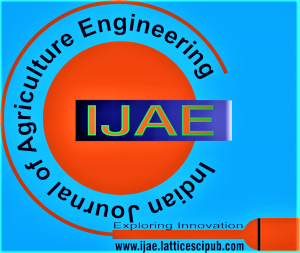![]()
From Deforestation to Reforestation: Unveiling the Green World of Richard Powers’ the Overstory
Ragavi A.1, S. Sangeetha2
1Ragavi A., Scholar, Department of English Literature, PSG College of Arts and Science, Coimbatore (Tamil Nadu), India.
2Dr. Sangeetha S., Associate Professor, Department of English Literature, PSG College of Arts and Science, Coimbatore (Tamil Nadu), India.
Manuscript received on 26 March 2025 | First Revised Manuscript received on 03 April 2025 | Second Revised Manuscript received on 19 April 2025 | Manuscript Accepted on 15 May 2025 | Manuscript published on 30 May 2025 | PP: 23-25 | Volume-5 Issue-1 May 2025 | Retrieval Number: 100.1/ijae.A153005010525 | DOI: 10.54105/ijae.A1530.05010525
Open Access | Ethics and Policies | Cite | Zenodo | OJS | Indexing and Abstracting
© The Authors. Published by Lattice Science Publication (LSP). This is an open-access article under the CC-BY-NC-ND license (http://creativecommons.org/licenses/by-nc-nd/4.0/)
Abstract: This paper examines how Richard Powers’ The Overstory portrays deforestation not just as an environmental crisis but as a crisis of human identity and ethics. Further the study aims to approach the role of forests, the impact of human activities, and the importance of addressing deforestation and promoting reforestation and afforestation through the lens of the green world ‘Richard Powers’ The Overstory’ [1]. Deforestation refers to the clearing or removal of forests, typically to make way for agricultural activities, urban development, or logging. This practice leads to the loss of forested areas and the degradation of ecosystems. In contrast, reforestation is the process of replanting trees to restore forest areas that were previously deforested, while afforestation involves planting trees on land that was not previously forested. Both practices aim to rehabilitate ecosystems, restore biodiversity, and enhance environmental conditions. Powers’ The Overstory is a compelling novel that intricately intertwines the lives of nine characters from diverse backgrounds in America with the natural world, particularly their emotional connections with trees. As the story unfolds, these characters encounter various environmental challenges, including deforestation. Their experiences and the impact of these challenges lead them to commit themselves to protecting and restoring nature, with a focus on forests and trees. Their journeys reflect a broader engagement with ecological preservation and activism. To note, this novel strives to devise solutions to the crisis of deforestation in the age of the Anthropocene through various characters from all walks of life. Despite winning the Pulitzer Prize and being shortlisted for the Man Booker Prize in 2018, as well as receiving acclaim from critics as ‘the eco-epic of the year’, the novel presents an exciting opportunity for further scholarly exploration, particularly regarding its innovative contributions to eco critical narratives and knowledge production. By framing the story around the critical issue of deforestation, Powers not only underscores the profound interconnection between humans and nature but also uses this framework to explore broader themes of environmental stewardship and awareness.
Keywords: Deforestation, Reforestation, Afforestation, Emotional Connection, Activism, Hope.
Scope of the Article: Agricultural Biotechnology
